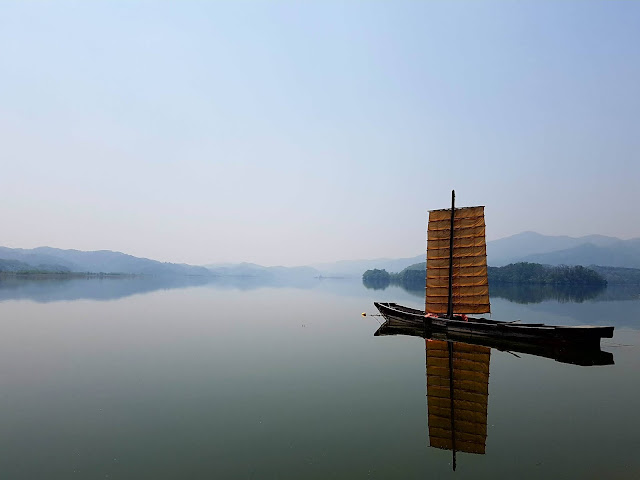In praise of serendipity, when nothing seems right
When I was in college, I thought I knew what would happen to my life. I knew where I would live – that was easy: Four generations of my family lived in the same house. I knew what I would do – follow either my grandfather into the family business or my father into college teaching. I also knew who I would marry – well, at least my parents made up their mind about that.
Of course, none of that happened.
The world around me changed and all the assumptions I grew up with disappeared one
by one. I ended up living five thousand miles away from my family
home, being in a profession which didn’t exist when I was in college. By the
time I married, my parents had given up on the idea that they knew what would be best for me.
But, looking back, while I would love to say that I took the risks and followed my heart, I didn’t do anything of that sort. Rather, at every turn, I tried to fit in, be consistent, keep my commitments. I did not try to dent the universe, as Steve Jobs called my generation to do, but rather sought to live an unobtrusive, normal, life. When I am asked what shaped my unusual career, the only explanation I could offer was serendipity (that beautifully invented English word which means setting off without knowing where you are going). I just followed the road.
It would also seem that I was lucky. I graduated from college with Internet and Mobile phones still ahead of me. But then, I did not know that at the time. When I was about to sit for the last paper of my university finals, India was plunged into a communal riot in the wake of the destruction of Babri Masjid. Nationwide carfew was declared and the examination was postponed by a month - and with it, went my first job offer. Also, my aspiration to be a financial analyst was already rendered useless by the Indian stock market crash (the 1992 scam dampened the markets for a long time). Rather unexpectedly, what saved me is my proficiency in Unix - which was more a hobby - and that led to a compromise job in data communications. There was no plan, but that was a very opportune moment and it somewhat set me on the path that I was to follow later.
But, in the bargain, I had to live with uncertainty. Though I had breathless enthusiasm for the Internet, it made my employer's business model - commercial e-mail service - redundant from the word go. The only saving grace was that I saw it coming well in time: I had already been dialling into servers in Singapore and joining in usenet forums before it became commercially available in India. Again, my career was saved by something I loved to do rather than something I formally pursued. Someone told me that uncertainty can’t be
overcome – it can only be understood. Now that I think about it, that's more or less the only thing I was trying to do all through my career.
Therefore, when I am asked about career planning, I suggest Career Design instead. Design - as in getting ready with a toolkit and to be a keen student of what’s happening around us and respond accordingly! The plans we make today are almost always based on yesterday’s opportunities and not very helpful when we have a moving target – the opportunities of future. It’s not the rigour of our planning, but the agility and adaptability, our openness, that determines the trajectory of our lives. When carefully laid assumptions fall apart, our ability to engage and commit usually saves the day.
Indeed, let me not sound smug. My life, like everyone else's,
is work-in-progress. There was no boy-has-done-it moment for me; if there was anything, there were lots of deja-vu moments. Twenty-five years ago, I was spending my waking hours trying to persuade senior executives why email might be better than fax; today, as I argue the case for good online learning, I get the same polite rejection. May be I was missing the point then - the materiality of paper meant trust in a bureaucratic environment; may be I am still missing the point - education is perhaps more about signalling than really learning. But, I soldier on.
I keep hope and urge everyone to do so. As a wise character once said, it would be alright in the end; if it’s not alright, it’s not the end.


Comments